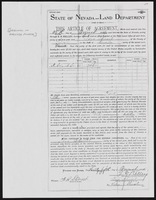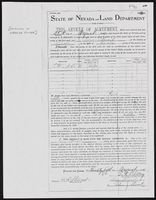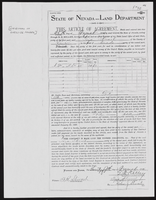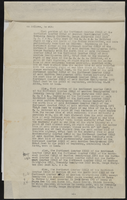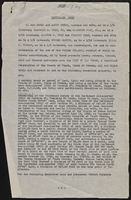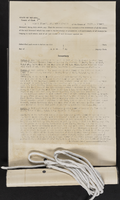Search the Special Collections and Archives Portal
Search Results
Nan Doughty Photograph Collection
Identifier
Abstract
The Nan Doughty Photograph Collection (1870-1987) consists of approximately 960 black-and-white and color photographic prints, black-and-white photographic negatives, and black-and-white and color photographic slides, taken by Nanelia Doughty, family members, and friends.
Archival Collection
C. D. Baker Photograph Collection
Identifier
Abstract
The C. D. Baker Photograph Collection depicts former Las Vegas, Nevada mayor Charles Duncan "C. D." Baker from 1916 to 1966. The photographs primarily depict Baker at political events, including campaign stops, fundraising events, meetings with officials and politicians, and at important locations in Las Vegas and Nevada. Baker was photographed with politicians such as U.S. Senator Chic Hecht, President Harry S. Truman, Governor Vail Pittman, and Lt. Governor Cliff Jones.
Archival Collection
Las Vegas High School Architectural Drawings
Identifier
Abstract
The Las Vegas High School architectural drawings include blueprints for various improvements, expansions, additions, and renovations performed for the Las Vegas, Nevada high school between 1929 and 1972. The architectural drawing sets include site plans, floor plans, elevations, sections, building component details, and structural drawings.
Archival Collection
C. D. Baker Engineering Field Notebooks
Identifier
Abstract
The C. D. Baker Engineering Field Notebooks are comprised of the notebooks and informational texts Charles Duncan "C. D." Baker created and used between 1909 and 1966 while he served as the County Surveyor for Clark County, Nevada and the City Engineer for Las Vegas, Nevada. The field notebooks contain survey coordinates and elevation data for much of early Las Vegas and provide important information on early property boundaries, historical elevations, and lengths of streets from the 1920s to the 1960s. There are also oversized right of way maps for Clark County, Nevada.
Archival Collection

